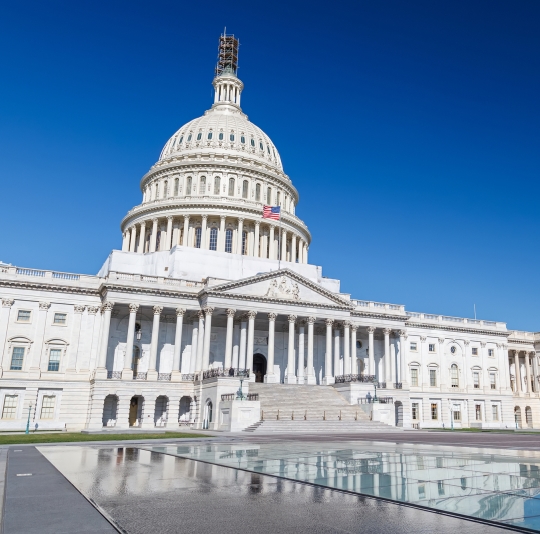In the News
Wexton Hosts First Gun Safety Town Hallhttps://loudounnow.com/2019/06/22/wexton-hosts-1st-gun-safety-town-hall/
Washington, DC,
June 24, 2019
|
Patrick Szabo
In a year when more than 200 Americans have been killed in shootings, U.S. Rep. Jennifer Wexton (D-VA-10) is learning more from residents about what the federal government can do to improve the nation’s gun laws. About 200 people spent Saturday afternoon out of the summer heat, but well within the political heat stirred during the first-year U.S. congresswoman’s first gun safety town hall at J. Michael Lunsford Middle School in Chantilly. Joining Wexton were Barbara Boardman, a pediatrician and assistant professor and clinical instructor at Georgetown University; David Chipman, a senior policy advisor at gun violence prevention group Giffords, led by former Congresswoman and shooting victim Gabrielle Giffords, and a member of the International Association of Chiefs of Police’s Firearms Committee; and Christian Heyne, the vice president of policy at gun violence prevention group Brady. The forum gave all four a chance to hear from residents how the federal government should, or shouldn’t, place additional restrictions on firearm purchases. Wexton kicked off the town hall saying the nation has been “struck by mass killings more than we should” and that there’s “no community that is safe from gun violence.” According to Mass Shooting Tracker, 231 people have been killed in the U.S. in mass shootings this year. Heyne described an instance of gun violence 14 years ago when he lost his mother. He said it was on Memorial Day weekend in 2005 when a disgruntled neighbor killed his mother by shooting her in the back after first shooting his father three times. Heyne said that led him to devote his life to finding ways to keep “deadly weapons” from getting into “dangerous hands” and finding evidence-based policies that don’t prevent law abiding, responsible residents from retaining their rights to bear arms. In talking about how the government can make that happen, Chipman, a former special agent for the Bureau of Alcohol, Tobacco, Firearms and Explosives, described what he said were flaws in the nation’s gun laws that have allowed a convicted murderer to falsify their home addresses and buy multiple guns. Chipman also noted that a high school senior can go to a gun show and purchase the same type of rifle that S.W.A.T. teams use without government awareness or vetting. “That doesn’t line up with my thoughts with what is reasonable,” he said. Heyne echoed Chipman’s concern and gave an example from his past. He said that in 2012, he and a friend walked into a gun show with $500 in cash, handed it to a “stranger” who looked at his friend’s I.D. and placed a .38-caliber revolver in a Food Lion bag without conducting a background check or giving them a bill of sale. “It was completely legal,” he said. He referenced the Sept. 11, 2001, terrorist attacks and how they prompted increased security in airports. He said that while that inconveniencing all airline passengers, it’s provided them with an increased level of safety when flying, just as more background checks for gun sales would do for the general public’s overall safety. “It’s an inconvenience I’m absolutely willing to do to serve a bigger good,” he said. One attendee told the panel that the government should implement educational classes on firearms, since background checks don’t prevent law-abiding citizens from privately selling guns to someone with bad intentions. Wexton said she was “all for firearm safety courses” and in-person training for concealed carry permits. Boardman said that firearm education courses, however, aren’t appropriate for all age groups, pointing to studies have shown that such courses might increase the attractiveness of guns to younger generations. Arthur Purves, the president of Fairfax County Taxpayers Alliance who recently filed to run as the Republican challenger to state Sen. Janet Howell (D-32) in the November election, said the 10 Commandments present the most effective gun laws, to which Wexton replied, “I don’t think that’s a particularly effective way to combat gun violence in our society today.” Switching from the topic of background checks, Saturday’s discussion also focused a bit on gun-free zones, which one attendee said “are nothing but killing zones.” When Wexton mentioned that May’s Virginia Beach shooting happened in a location that wasn’t a gun-free zone, several members of the audience spoke up, saying that the municipal building where the shooting took place did prohibit employees there from carrying guns. “The police are minutes away when seconds count,” he said. “We’re the first line of defense, really.” Wexton held the town hall a day after she introduced the Empowering Law Enforcement for Safer Firearm Transfers Act—a bill that would allow law enforcement officers to block the sale or transferof any weapon or gun silencer regulated under the National Firearms Actto people they determine are a danger to themselves or others. The bill would once again give chief law enforcement officers—Sheriff Michael Chapman in Loudoun—90 days to block sales or transfers. That’s something they haven’t been able to do since 2016, when the laws were updated and National Firearms Act background check requirements were changed. Currently, residents looking to purchase a silencer or other federally-regulated weapon must obtain approval from the Bureau of Alcohol, Tobacco, Firearms and Explosives, pass a background check, pay a $200 tax and notify the chief law enforcement officer in their jurisdiction. |



